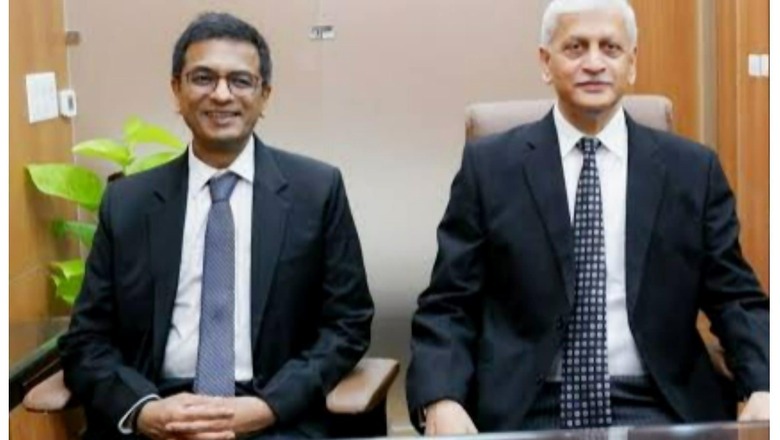
views
After a full court meeting, Chief Justice of India Uday Umesh Lalit on Tuesday recommended the name of Justice DY Chandrachud as his successor, who will assume the post of the 50th Chief Justice of India (CJI).
Currently, the second senior most judge of the Supreme Court (SC), Justice DY Chandrachud will assume charge as the CJI on November 8.
He will have a tenure of over two years.
A look at his career, notable judgments and the two occasions when he overturned his father’s judgments.
ABOUT JUSTICE DY CHANDRACHUD
- Justice Dr Dhananjaya Yeshwant Chandrachud was born on November 11, 1959 to former Chief Justice of India, Justice Y V Chandrachud.
- Justice Dhananjaya Yeshwant Chandrachud completed his LLB at Delhi University.
- He then studied at Harvard University after receiving the prestigious Inlaks Scholarship. At Harvard, he completed his Masters in Law (LLM) and Doctorate in Juridical Sciences (SJD).
- He was designated as Senior Advocate by the Bombay High Court in 1998 and served as the Additional Solicitor General of India from 1998 to 2000.
- He was appointed as the Additional Judge of the Bombay HC on March 29, 2000 and took oath as the CJI of Allahabad HC on October 31, 2013.
PART OF MANY NOTABLE JUDGMENTS, A LOOK AT A FEW OF THEM
- Ayodhya Title Suit: In a landmark ruling, a five-judge Constitution Bench of the Supreme Court on November 9, 2019 unanimously ruled that the disputed site at Ayodhya will go to Hindus and Muslims will get alternative land.A five-judge Constitution Bench headed by then Chief Justice of India Ranjan Gogoi and comprising Justices DY Chandrachud, S Abdul Nazeer, Ashok Bhushan and S A Bobde awarded the title to the deity, Shri Ram Virajman, and directed the State to grant the Sunni Waqf Board an alternative site at Ayodhya for the construction of a mosque.
- Right to Privacy: In August 2017, a nine-judge bench of the Supreme Court unanimously affirmed that the Constitution of India guarantees a fundamental right to privacy.Justice Chandrachud authored the majority decision in Justice K S Puttaswamy v Union of India speaking for himself and Khehar J, RK Agarwal J and Abdul Nazeer J.He recognised the right to privacy and dignity as an intrinsic part of the right to life.
- Abortion Rights: The Supreme Court in September this year ruled that both married and unmarried women have the right to safe and legal abortion. A bench headed by Justice DY Chandrachud and also comprising Justices AS Bopana and B V Nagrathna held that every woman irrespective of the marital status is entitled to safe and legal abortion.“The distinction between married and unmarried woman for the purposes of the MTP Act is artificial and constitutionally unsustainable and it perpetuates the stereotype that only married women indulge in sexual activities," the bench said.
WHEN HE STRUCK DOWN HIS FATHER’S JUDGMENTS
Justice DY Chandrachud, during his tenure as a judge of the Supreme Court, overturned two judgments of his father Y V Chandrachud who served as 16th Chief Justice of India.
The judgments were related to adultery and right to privacy.
In the adultery law, senior Chandrachud had upheld the validity of Section 497. Justice YV Chandrachud wrote the Sowmithri Vishnu judgment. Thirty-three years later, his son Justice DY Chandrachud, while hearing the case, had said, “We must make our judgments relevant to the present day."
“The law in adultery is a codified rule of patriarchy," Justice DY Chandrachud wrote in his judgment striking down the law.
In another such judgment upholding the right to privacy as a fundamental right, Justice DY Chandrachud, who wrote the lead verdict in the Supreme Court’s landmark judgment, overturned two previous verdicts on the hotly debated subject and overruled another judgment often described as the darkest hour in Indian judiciary.
In doing so, he set aside the opinion of his father, Justice YV Chandrachud, in the controversial ADM Jabalpur case. The senior Chandrachud was among four of the five judges who in 1976 upheld a presidential order to impose Emergency in the country. The Congress was in power then.
Read all the Latest News India and Breaking News here










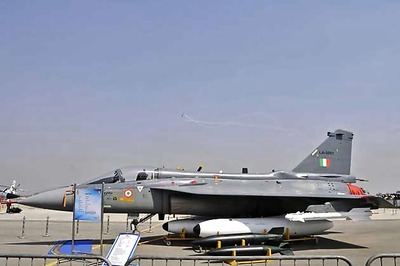


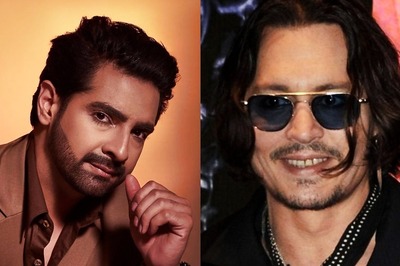
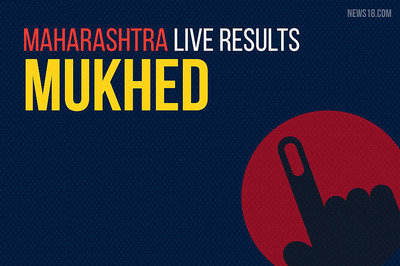

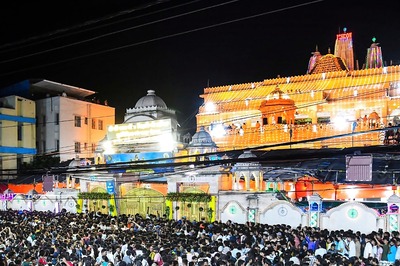

Comments
0 comment